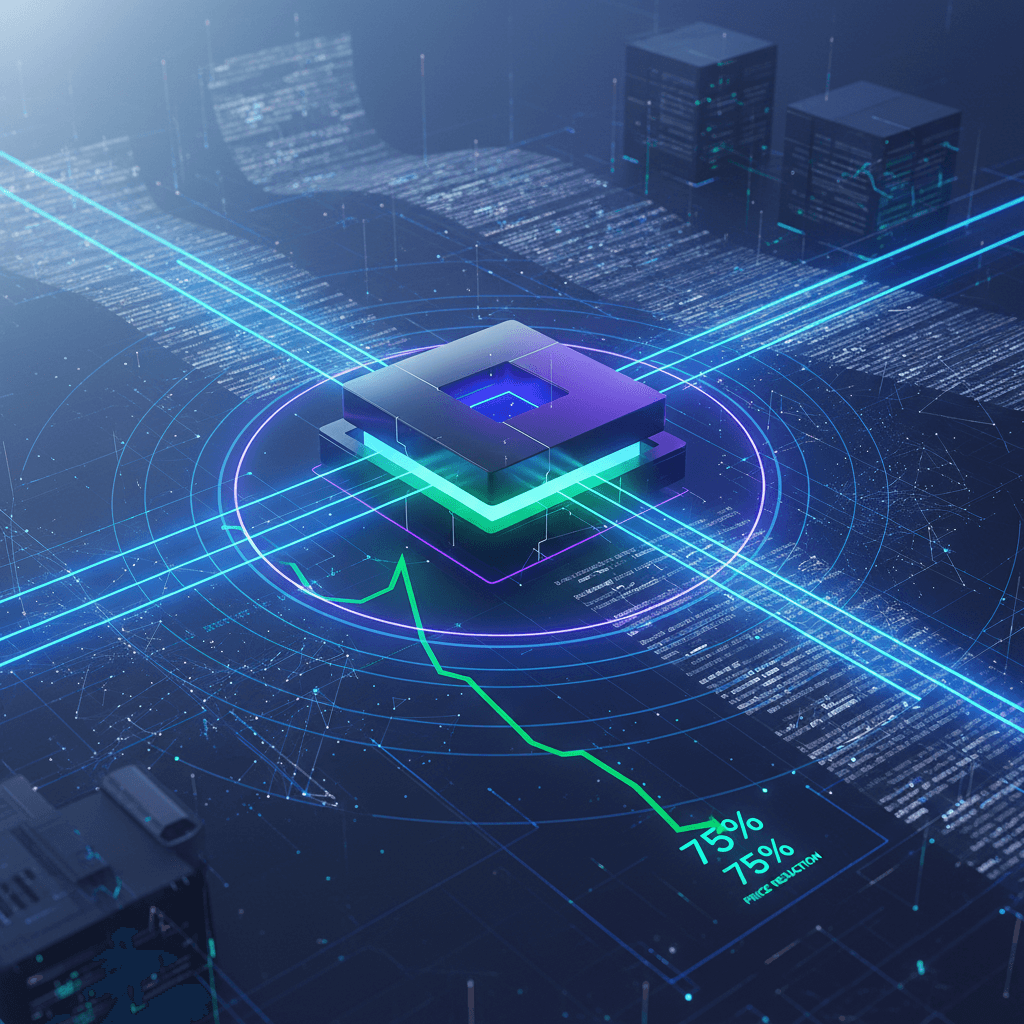Deepseek's Efficient New AI Slashes API Prices 75%, Fuels Price War
Deepseek's new model and massive price cuts spark an AI price war, making advanced long-context models vastly more accessible.
September 30, 2025

In a move poised to accelerate the commoditization of artificial intelligence, Chinese AI developer Deepseek has introduced its latest experimental model, Deepseek-V3.2-Exp, accompanied by aggressive API price cuts of over 50%, with reductions of up to 75% for certain services.[1] This development, hot on the heels of its recent V3.1-Terminus release, signals a continued push towards greater efficiency and accessibility in a fiercely competitive global market.[2][3][4][5] The announcement challenges established players and reinforces Deepseek's reputation as a market disruptor, focusing on delivering high-performance AI at a fraction of the cost of its Western counterparts.[6][7][8] The core innovation of this new release is not a leap in raw performance but a strategic architectural shift designed to dramatically lower the cost and increase the speed of processing long-form text, a common bottleneck in AI applications.
The centerpiece of the V3.2-Exp model is a proprietary technology called DeepSeek Sparse Attention (DSA).[9][3][4][10] Traditional AI models, known as transformers, use a "dense attention" mechanism where every part of the input text is compared with every other part, a process that becomes computationally expensive and slow as the length of the text increases.[3][11] DSA offers a more efficient alternative by selectively focusing the model's computational resources on the most relevant segments of the input data.[3][11][12][13] This "fine-grained" approach allows the model to process vast amounts of text—up to 128,000 tokens—with significantly less computational power and memory.[10] According to Deepseek, this innovation leads to 2-3 times faster inference speeds for long-context scenarios, a 30-40% reduction in memory usage, and up to a 50% improvement in training efficiency.[14][1] The company has positioned V3.2-Exp as an "intermediate step" and a research-oriented release to validate these architectural optimizations before a full next-generation rollout.[4][12][15][5]
In a direct appeal to developers and businesses grappling with the high costs of AI, Deepseek has implemented substantial price reductions for its API services. The most dramatic cut is a 75% drop in output token costs, from $1.68 to $0.42 per million tokens.[16][1] Input costs have also been slashed, with prices for "cache hit" tokens (frequently accessed data) falling 60% from $0.07 to $0.028 per million tokens, and "cache miss" tokens dropping by 50% from $0.56 to $0.28.[16][1] This pricing strategy makes Deepseek one of the most affordable large-scale AI providers globally, lowering the barrier to entry for startups, researchers, and enterprises looking to build applications that handle extensive documents, such as in legal analysis, scientific research, or complex coding.[3][17][14] By open-sourcing the model and providing tools for deployment on various hardware platforms, including Chinese-made AI chips from Huawei Ascend and Cambricon, Deepseek is also fostering a broader ecosystem and signaling a move towards reducing reliance on U.S. chipmakers.[10][18]
Crucially, Deepseek claims these significant efficiency gains and cost reductions have been achieved with minimal impact on the model's performance quality. To ensure a direct comparison, V3.2-Exp was trained under the same conditions as its predecessor, V3.1-Terminus.[12][13][15] Across a wide range of industry-standard benchmarks for reasoning, coding, and agentic tool use, V3.2-Exp performs on par with V3.1-Terminus, with most metrics showing differences of less than two percentage points.[9][3][14] In some specific areas, such as the Codeforces programming competition benchmark and browser-based tasks, the new model shows slight improvements.[17][14] However, some minor performance dips were noted in a few reasoning-heavy benchmarks, underscoring the experimental nature of the release and indicating that while promising, sparse attention may require further tuning for certain specialized tasks.[11][12]
This strategic move from Deepseek is set to intensify an already brewing price war in the AI industry and accelerate the trend toward the commoditization of large language models.[19][6] The company has a history of shaking up the market; its earlier models shocked investors and competitors by demonstrating that high-level performance could be achieved without the massive capital expenditure previously thought necessary, triggering significant sell-offs in tech stocks.[2][8][1] By continuously driving down costs, Deepseek puts pressure on major players like OpenAI, Anthropic, and Google, as well as domestic Chinese rivals like Alibaba's Qwen, to reconsider their own pricing models and business strategies.[4][6][5][18][20] As the underlying technology becomes more of a commodity, the competitive landscape may shift from who has the most powerful model to who can provide the most value and build the most innovative applications on top of increasingly accessible and affordable AI.[19] Deepseek's focus on efficiency over raw power with its V3.2-Exp model is a clear bet that in the long run, cost-effective performance will be a key factor in winning the global AI race.[14]
Sources
[2]
[3]
[4]
[5]
[6]
[8]
[10]
[11]
[12]
[13]
[14]
[16]
[17]